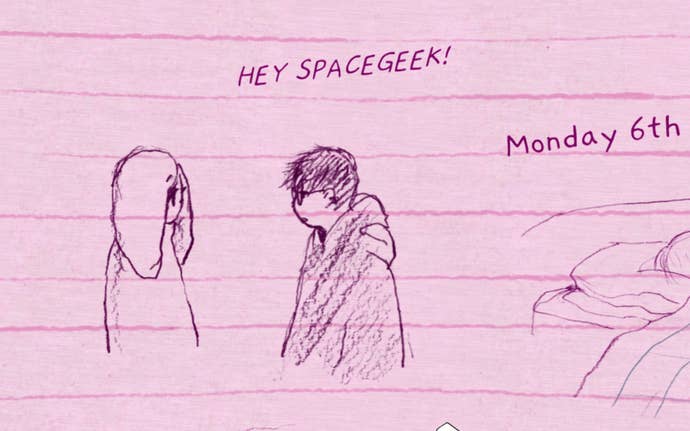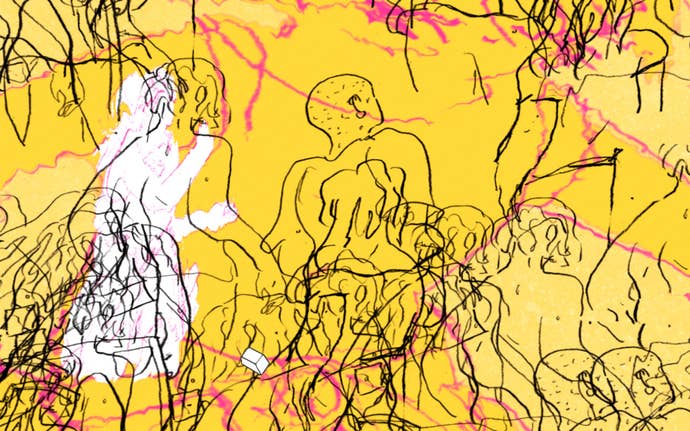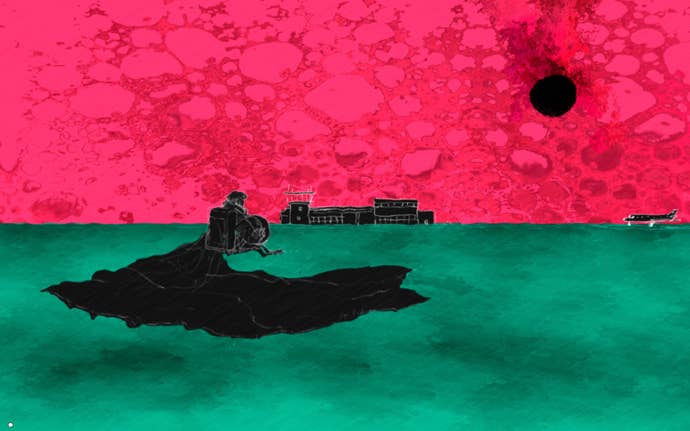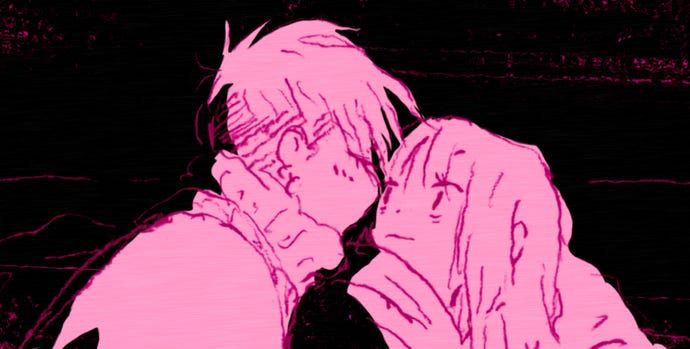If Found Review: Falling out of Love
A mesmerising commentary on the nature of relationships.
This article first appeared on USgamer, a partner publication of VG247. Some content, such as this article, has been migrated to VG247 for posterity after USgamer's closure - but it has not been edited or further vetted by the VG247 team.
Some relationships last. Some relationships don't. Whether the relationship is romantic or non-romantic in nature doesn't matter; some relationships are just always destined to fall apart. If Found isn't concerned so much about why relationships break down, but what happens in the aftermath of failed relationships.
If Found is the tale of Kasio, a 23-year old student with a dead-set pathway through life, dropping back in on her family in the aftermath of her father's funeral in rural Ireland. The funeral is the setup for the main story, but it's not the driving force, because Dreamfeel's game is more concerned with how human beings cope with grief. It suggests that grief is a constant in human life, regardless of where it comes from, so it's wise to tackle how we deal with it.
If Found unfolds across a stunning artistic canvas, taking the form of jaw-dropping paintings. It's a touch-based game at heart: you'll scrub across the screen to get rid of a layer of text or an image, which uncovers the subsequent image or text. Sometimes you'll be wiping back layers of a painting to advance the story, before being transported to the scribbled-out pages of Kasio's diary to uncover her day-to-day activities interacting with the people around her. If Found might function like a visual novel, but it's constantly shapeshifting in-between superbly stylish aesthetics, showcasing roughly two months of Kasio's life in an hour and a half.
The evolution of If Found's art style over a relatively short period of time is brilliant. It pivots between minimalistic line drawings, ultra-detailed canvas paintings, and scribbles in a diary to advance the plot; be it through conventional dialogue bubbles, or expositional text you'll need to scrub out to advance. The rate of changing art styles is matched only by the way text is presented to you, giving way more life to If Found than if it were a straightforward dialogue game. There's a lovely fluidity to the changing art styles, matched only by Kasio's ever-deepening character.

Scrubbing back the layers of the paintings feels like peeling back the layers of Kasio as you delve deeper into her psychology and relationships with the people around her. These are primarily her mother and brother, as well as the misfit crew of young adults she runs away from home with. They live in a small town in rural Ireland, a space in time which never really changes or moves on. Whether we love or loathe a place like this, there's no denying that we all know somewhere like this small town, stuck in its own ways and refusing to change or evolve with the shifting world around it.
But, again, If Found barely pauses on how or why Kasio has fallen out with her mother or brother. It's more concerned with the aftermath: how Kasio seeks solitude with the misfit crew living in an abandoned house, and how she desperately rushes after acceptance in replacement of her family. At first, If Found seems like a decidedly pessimistic tale. "You'll always burn bridges and end relationships," it says, which is a pretty bleak idea when you think about it. But it's the truth. You can't go through life without ending relationships, either because you simply drift apart, or because you have an overt falling out.
If Found's first scene of tension doesn't take long to come around. Kasio's sitting in her family house, debating what to say to her mother, when the latter enters the room, with light colors filling the screen outward from where she's standing in the doorway. The mother's presence is felt everywhere around Kasio, the change of the color overlay tells us. The music is relaxing synths at first, undercut by a rising growl when the conversation grows tense—Kasio isn't keen to talk about her future or what her mother expects of her. The line drawings of the two characters fluctuate in wild patterns as their emotions strain to understand the feelings of the other. With the hard, edgy synths underlying the tense exchange and line drawings constantly reverberating around the screen, the emotions of the two characters have no trouble popping out of the screen at you.

If Found ultimately asks a deeper, more painful question: what if this is all the love you ever get? We constantly push forward in the game wondering if and how Kasio can ever recover from falling out with her family. We desperately wonder if things will ever regain a sense of normalcy after her life begins to fall apart at the seams, from securing a PhD placement to squatting in an abandoned house in rural Ireland. Because your life absolutely will hit rock bottom moments like these, If Found says. It's how human beings adapt to and move on from these situations that makes us unique.
Every time Kasio encounters her mother or brother in the two months in the small Irish town, there's an overriding sense of dread. You know the destruction of their relationship is coming, it's only a matter of when. Kasio will fall out with them for all manner of reasons— they're overbearing, don't take her seriously, or want her to fail (from her point of view)—and there's a spike of dread that shoots up within me every time the glib face of Kasio's mother appears. Because I know how all these conversations end in a relationship that fundamentally doesn't function, and so do you: both parties will retreat wounded, their efforts to bring each other closer only resulting in hurt.

There's a stunning beauty to If Found, and it goes further than the gorgeous painting aesthetic of Kasio's journey. The artistic nature of Dreamfeel's game is stunning to stop and stare at, and the minimalistic score is punctuated by the occasional harmony of synths that accompany some of the more intense segments. But If Found's true beauty is in examination of life: looking beyond the pessimistic first impressions of bridge-burning and failed relationships. It shows that life does continue after these events, and that there's always something waiting for you on the other side of tragedy.
ConclusionIf Found is a mesmerizing commentary on the nature of failed relationships and human nature. The stunning painted canvas the game is presented on has an outwardly negative attitude—presenting failure in relationships as a constant—but it crucially dictates that although the ending of relationships is an inherently human trait, so is the continuation of life and something meaningful arriving afterwards in the wake of tragedy, as we build and evolve from such events.


